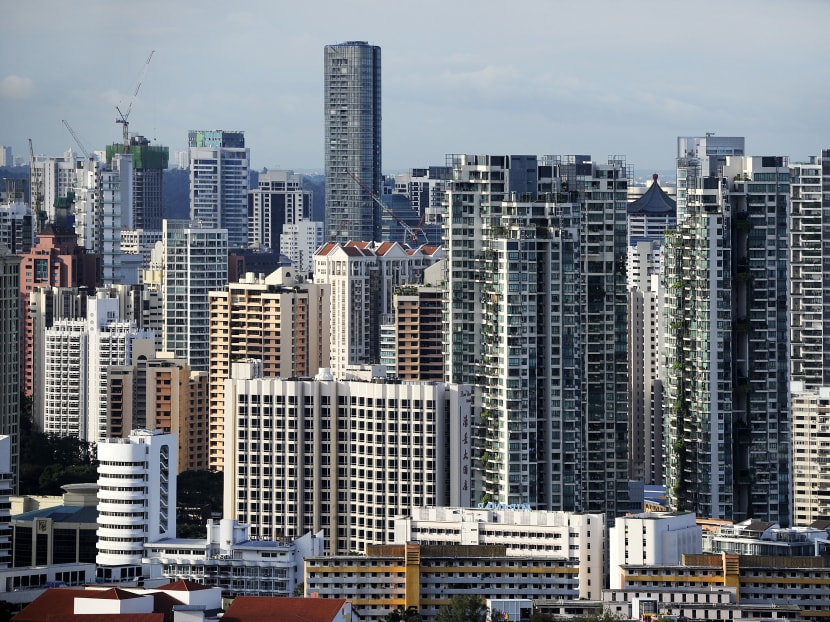Private home prices fall for eighth straight quarter
SINGAPORE — Private home prices in Singapore fell in the third quarter, marking the eight straight quarter of decline to match the longest losing streak in 13 years, with analysts saying they expect the market to remain under pressure amid the worsening economic outlook.
SINGAPORE — Private home prices in Singapore fell in the third quarter, marking the eight straight quarter of decline to match the longest losing streak in 13 years, with analysts saying they expect the market to remain under pressure amid the worsening economic outlook.
The Urban Redevelopment Authority (URA) said today (Oct 1) that preliminary data showed that its private residential property price index fell 1.3 per cent in the three months ended Sept 30 from the previous quarter, accelerating from the 0.9 per cent decline in the second quarter. As repeated rounds of cooling measures and loan curbs continued to weigh on the market, it was the longest stretch of decline since the second quarter of 2002, when prices also fell for eight straight quarters, said Ms Christine Li, director of research at property firm Cushman & Wakefield.
Prices of non-landed private residential properties fell at a steeper rate in all segments in the third quarter, reflecting the broad-based weakness in the market. Homes in the Outside Central Region, or the suburbs, registered the biggest drop of 1.6 per cent, compared with the 1.1 per cent decline in the previous quarter, according to the URA flash estimates.
In the Core Central Region, or city centre, home prices fell 1.3 per cent, steeper than the 0.6 per cent drop last quarter. In the Rest of Central Region (RCR), or the city fringes, prices fell 1.5 per cent, compared with 0.6 per cent previously.
Mr Nicholas Mak, head of Research and Consultancy Department at SLP International Property Consultants, said a steady supply of new homes and tighter immigration policies are weighing on the market already cooled by property measures and loan curbs. “Many market participants expected that prices would continue to decrease. Hence, they adopted the wait-and-see approach, which further dampened buying demand,” he said.
Analysts warned that the market remained vulnerable to the weak economic prospects, adding that sellers will need to cut prices further and offer more incentives to close sales.
“In the absence of sustained demand drivers, coupled with the worsening of the economic situation over the recent months with the downward revision of the official gross domestic product forecast and the risk of a technical recession in the third quarter, developers and owners need to give further incentives to push for deals,” Ms Li said.
Meanwhile, foreign buyers have stayed away from Singapore’s residential market in view of the high Additional Buyer’s Stamp Duty, she added. The non-Permanent-Resident foreigner share of buyers for non-landed homes, excluding executive condominiums, declined to 4 per cent in the third quarter from 10 per cent in the corresponding period last year.
Mr Eugene Lim, key executive officer at property agency ERA, said buyers still prefer to stick to homes that cost below S$1.5 million.
“With the Total Debt Servicing Ratio still in place, buyers continue to be limited in their ability to purchase properties of larger price quantums. This exerts continued downward pressure on prices as buyers are unable to take out larger loans.”
“Between the different geographical sectors, it is clear that properties in the OCR suffered the greatest fall in prices. This may be partly due to the large supply of unsold suburban projects competing with buyers in the resale market,” he added.
Mr Lim forecast that prices will continue to decline at the current moderate pace in the absence of any major unforeseen events. An overall price decline of not more than five per cent for the whole of 2015 is expected, he said.
Mr Mak urged the Government to review the cooling measures, saying the housing market is expected to face further headwinds given a possible technical recession in Singapore, regional economic uncertainties and a potential increase in interest rates.







